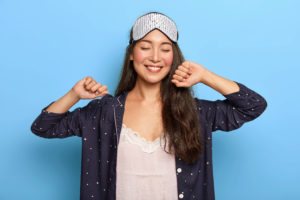
THE BOTTOM LINE
- Sleep-related hallucinations can affect all of your senses
- They can occur during sleep onset or upon waking up
- It is important to treat any underlying causes
This parasomnia can affect all of your senses as the hallucinations can be visual, auditory, tactile, or kinetic. They can persist for up to several minutes after waking up, making them even harder to deal with. There are two types of sleep-related hallucinations:
Hypnagogic: during sleep onset
Hypnopompic: upon waking up
Hypnopompic hallucinations have also been found to be related to episodes of sleep paralysis.
How common are sleep-related hallucinations?
As many as 25% of the population will experience these type of hallucinations at some point during their lifetime.
Can they impact my health?
This parasomnia is not known to occur frequently in people who experience them and they have not been found to impact sleep quality, therefore they likely will not have any impact on your health.
What causes these hallucinations?
The most likely causes are:
Stress or anxiety
Narcolepsy
Substance use/abuse
How do I treat it?
Since this parasomnia doesn’t have an impact on your sleep quality or health, you may not need to look into treatment. However, it is important to treat any underlying causes, so refrain from substance use and directly treat the cause of your stress, anxiety, or insomnia.






